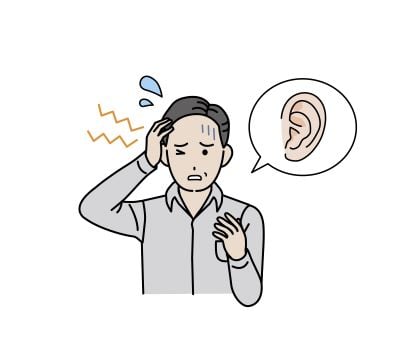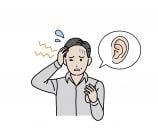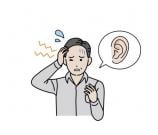Cognitive Behavioral Therapy for Tinnitus: Reduce Distress, Improve Functioning, Promote Habituation
Cognitive Behavioral Therapy for Tinnitus: Reduce Distress, Improve Functioning, Promote Habituation

US and European clinical guidelines designate cognitive behavioral therapy (CBT) as the only recommended treatment for tinnitus. As an experienced, board-certified, CBT psychologist who has tinnitus, I am heartened by this trend.
1990s CBT for Tinnitus
Unfortunately, the version of CBT typically offered for tinnitus is one that was popular in the 1990s, when CBT for tinnitus was first introduced. Originally called “cognitive therapy,” it’s now called “traditional” or “second-wave” CBT. Treatment consists of “cognitive restructuring,” a time-consuming process of tracking automatic negative thoughts, identifying cognitive distortions, and correcting them with more accurate, positive thoughts. Behavioral skills emphasize relaxation and engaging in pleasant events.
Today’s CBT for Tinnitus
Developments over the past twenty years led to third-wave CBT, which has many advantages over the older approach. Instead of changing our thinking, third-wave CBT emphasizes acceptance, mindfulness, and values-directed action. Acceptance and Commitment Therapy and Mindfulness-Based Cognitive Therapy are third wave CBT approaches that are more effective than the old approach.
Best Practice CBT for Tinnitus Distress
If you are a person struggling with tinnitus or a loved one of that person, here’s what I recommend:
Promote Tinnitus Habituation
How is it that someone can have the same tinnitus that brought me to my knees and not be bothered? How could someone, like me, who suffered greatly, get to a point where their tinnitus hasn’t changed but they couldn’t care less? People who aren’t bothered by their tinnitus have achieved a high level of habituation—the natural, neurological process through which the brain gradually reduces its emotional reaction and attention to tinnitus.
Habituation makes it easier—typically a lot easier—to live with tinnitus. In the absence of a cure, the greatest reduction in tinnitus suffering worldwide happens through habituation. When done correctly, CBT does more than just “manage” and “cope” with tinnitus. CBT shows us how to promote and maintain tinnitus habituation.
Acceptance versus Change
By tinnitus acceptance, we don't mean resigning to a future of suffering with tinnitus. We are simply acknowledging the fact that we probably cannot gain control over the sounds of tinnitus. Instead, we commit our efforts to adapting, coexisting, and moving on. We can be grateful that of all the hardships that can befall a person, tinnitus is rarely dangerous, is not physically painful, and is subject to habituation. Tinnitus acceptance is a practical decision that helps us move forward with recovery.
Therapeutic Exposure
Therapeutic exposure reverses patterns of avoidance that drive tinnitus distress and promotes confidence and habituation.
Therapeutic exposure is based on age-old wisdom: face your fears to overcome them; turn avoidance into approach. Rather than hiding from tinnitus and letting tinnitus control our lives, we can practice allowing tinnitus to exist, moving toward avoided activities. We can practice accepting uncomfortable feelings, while keeping our attention on what is important in the present moment, taking courageous action to fully rejoin our lives.
Mindfulness of Sound: the Practice of Tinnitus Acceptance
Several studies have found that mindfulness significantly reduces tinnitus distress. In mindfulness, we practice allowing our experience to be exactly as it is without trying to change it—and here’s the catch—even if we don’t like how it feels! We accomplish this feat by developing the skill of paying attention to our experience in the present moment, without being driven by thoughts and judgments. Through mindfulness, we can get better at experiencing unwanted, unavoidable aspects of life, such as tinnitus and uncomfortable emotions, without freaking out!
To get the most out of mindfulness for tinnitus, practice mindfulness of sound, hearing your tinnitus in a mindful, accepting manner, without making it the center of attention, and without getting pulled into gloom-and-doom thinking. Tinnitus becomes less threatening, more familiar, easier to ignore.
Flexible Thinking
With flexible thinking, we practice viewing problems from different perspectives and choosing the one that best fits. With tinnitus, there are two main perspectives: control and recovery.
The control perspective views tinnitus as the problem, so the only way to feel better is to reduce or remove tinnitus. This keeps us focused on tinnitus, fuels distress, and blocks habituation.
The recovery perspective views the distress reaction to tinnitus as the problem, so even if tinnitus doesn’t go way, even if it gets worse, we can be okay because we can learn to reduce tinnitus distress by coping and promoting habituation. The recovery perspective redirects our focus from controlling tinnitus to adapting, habituating, and moving on.
Values-Directed Action
Values-directed, committed action is the heart of modern CBT for tinnitus. Here’s where we apply our new skills—mindful acceptance, flexible thinking—and promote therapeutic exposure by leaning into our new lives with tinnitus.
In taking action to change your response to tinnitus, I recommend you first clarify your values. What’s most important to you in life? What brings you the most meaning? As you begin the process of reengaging in life, you will choose behaviors that are meaningful but may at times be uncomfortable. But here is where you’ll get the most bang for your buck!
A father, for example, may gain greater long-term relief from attending his daughter’s middle-school concert, facing the uncomfortable feeling that his tinnitus may get louder, than by taking a walk in a park. By accepting some discomfort in service of the greater goal, tinnitus takes a back seat, loses its importance. Tinnitus no longer controls our decisions and actions, we do. And through consistently taking these courageous steps, we gradually rebuild lives worth living.
When done correctly, CBT for tinnitus is an effective, efficient method for getting out of our ears and back into our lives!
Dr. Hubbard's Tinnitus Website: www.CBTforTinnitus.com
ADAA Tinnitus Resources





















